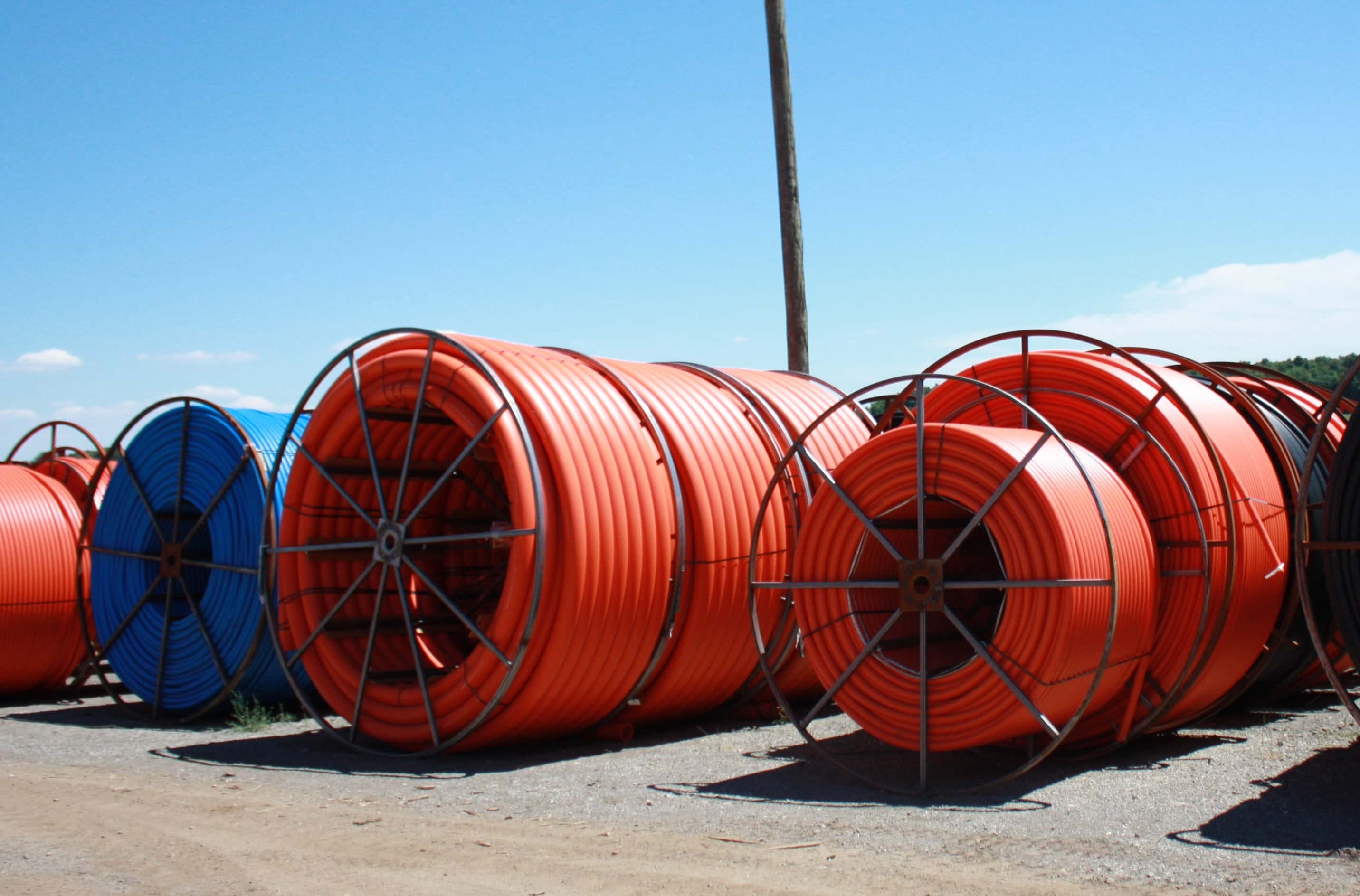Things to Know About Texas hdpe pipe manufacturer and What They Offer
Understanding the Trick Benefits of HDPE Pipeline for Water and Wastewater Monitoring
Making use of HDPE pipeline in water and wastewater administration offers countless benefits that warrant factor to consider. Its extraordinary longevity and long lifespan make it a favored selection for several projects. Additionally, the product's resistance to deterioration and chemical damages enhances its integrity in numerous settings. The benefits prolong beyond just longevity and resistance. American Plastics HDPE Pipe for Oilfield. Discovering its cost-effectiveness and environmental impact reveals even extra engaging factors for its extensive adoption in modern infrastructure
Phenomenal Durability and Durability

HDPE pipeline stands apart for its phenomenal sturdiness and long life, making it a preferred option in water monitoring systems. Constructed from high-density polyethylene, these pipelines can withstand substantial pressure and anxiety, ensuring trustworthy efficiency over time. Their robust nature enables them to sustain extreme environmental problems, consisting of temperature level fluctuations and soil movements, which can cause other materials to stop working.
The life expectancy of HDPE pipelines often exceeds half a century, giving an affordable option for municipalities and markets alike. In addition, the material's lightweight homes simplify installation, decreasing labor expenses and timeframes. This resilience decreases the demand for regular repair services or replacements, further enhancing its financial charm.
In water administration applications, the dependability of HDPE pipes suggests less interruptions and enhanced solution continuity, making them essential to lasting framework advancement. The combination of longevity and long life strengthens HDPE's function as a cornerstone in reliable water monitoring services.

Resistance to Deterioration and Chemical Damages
While numerous products catch corrosion and chemical damages in time, HDPE pipelines exhibit impressive resistance, making them optimal for various water administration applications. This resilience comes from the molecular framework of high-density polyethylene, which is inherently non-reactive and does not corrode like metals or degrade from exposure to rough chemicals. Consequently, HDPE is very effective in settings with aggressive compounds, such as wastewater systems that might contain acids, bases, and natural solvents.
In addition, HDPE pipes can hold up against environmental aspects such as dirt acidity and saline problems, further improving their viability for varied applications (American Plastics HDPE Pipe for Oilfield). Their ability to preserve architectural honesty in time lowers the danger of leaks and failings, which is essential in guaranteeing the safety and security and reliability of water distribution and wastewater administration systems. The resistance to deterioration and chemical damages markedly contributes to the overall effectiveness and long life of HDPE piping remedies.
Cost-Effectiveness and Financial Benefits
When thinking about the monetary ramifications of water administration systems, the cost-effectiveness of HDPE pipes becomes evident. These pipes offer lower setup and maintenance prices contrasted to conventional materials like metal or concrete. Their light-weight nature streamlines transportation and installation, causing minimized labor expenses. Additionally, HDPE pipes show a long lifespan, frequently going beyond half a century, which translates to less replacements and lasting cost savings.
Furthermore, the resistance of HDPE to deterioration and chemical damage lessens the need for pricey repair work and substitutes. The pipes additionally support effective water circulation, decreasing power costs connected with pumping systems. By mitigating leaks and water loss, HDPE pipelines contribute to considerable financial benefits for you could check here communities and industries alike. Generally, the initial investment in HDPE piping can generate substantial monetary returns over the life-span of the water monitoring system, making it a prudent option for lasting framework advancement.
Ecological Sustainability and Reduced Effect

Versatility and Flexibility in Installation
As a result of their distinct homes, HDPE pipes offer remarkable versatility and adaptability in installment, making them appropriate for a wide variety of applications. Their lightweight nature allows for less complicated handling and transport, minimizing labor costs and installment time. HDPE pipelines can be curved and formed to fit different terrains and task needs, which is especially useful in challenging environments.
Additionally, their resistance to deterioration and chemical damages allows for installation in varied settings without the demand for specialized safety finishes. The ability to fuse joints produces a continuous, leak-free system, improving the total integrity shower hose connector and reliability of the setup. HDPE's adaptability also accommodates ground movement, lowering the risk of damage in areas prone to shifting dirt. Overall, these qualities make HDPE pipes not just flexible however also a preferred choice for water and wastewater monitoring systems.
Frequently Asked Concerns
How Does HDPE Pipeline Compare to PVC in Water Management Applications?
HDPE pipeline supplies superior adaptability, resistance to rust, and toughness contrasted to PVC. Its lighter weight promotes easier installation, while its lengthy life-span minimizes replacement costs, making HDPE a favored option in water monitoring applications.
What Is the Life Expectancy of HDPE Pipes Under Common Problems?
Under regular problems, HDPE pipelines can have a life-span varying from 50 to 100 years. Their durability and resistance to deterioration add to their long-term efficiency in numerous applications, making them a reliable choice for framework.
Are HDPE Pipeline Recyclable After Their Life Span?
Yes, HDPE pipes are recyclable after their solution life. Pipe Manufacturing Midland TX. They can be processed and repurposed right into brand-new products, greatly minimizing ecological effect and advertising sustainability within the sector, making them an environment-friendly selection for piping options
What Is the Installment Process for HDPE Pipes?
The installment process for HDPE pipelines includes site prep work, trenching, pipe fusion or mechanical signing up with, backfilling, and pressure testing. Correct strategies ensure a resilient and efficient system for moving water and wastewater properly.
Can HDPE Water Lines Be Used for Both Drinkable and Non-Potable Water Systems?
Yes, HDPE pipes can be made use of for both safe and clean and non-potable water systems. Their flexibility, sturdiness, and resistance to deterioration make them ideal for different applications, ensuring risk-free and effective transportation of water in different contexts.